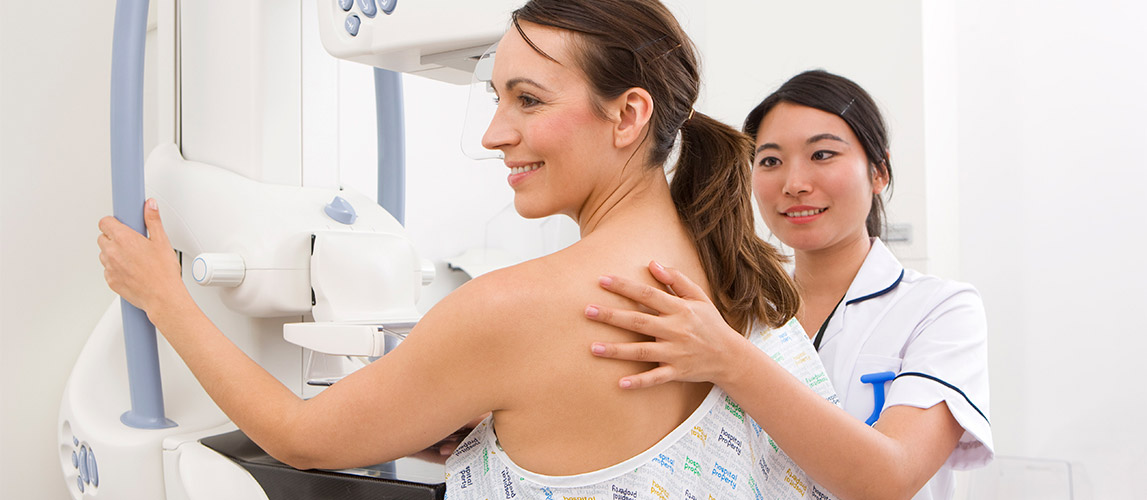Breast Cancer Screening

Every day, 250 women die from breast cancer. Experts agree that regular breast screening is beneficial in identifying breast cancer and can save lives. The earlier the condition is found, the better the chances of surviving it. You are also less likely to need a mastectomy (breast removal) or chemotherapy if breast cancer is detected at an early stage.
Care1 Executive Health Care Center offers a digital mammography service which offers the highest quality digital imaging ever available in Vietnam. Potential advantages over film imaging include:
− 60% less radiation
− More effective for dense breasts as well as for women under the age of 50
− The ability to manipulate the image for clearer definition and easier retrieval of results for analysis
Who's at risk of breast cancer?
All women are at risk of breast cancer and this risk increases with age.
Other risk factors include:
− Family history of breast cancer
− Personal history of benign breast disease and/or unilateral breast cancer
− First period before age of 12 or menopause at age 55 or older
− Not having children or having children after the age of 30
− Overweight, obesity, drinking alcohol and smoking
How to detect breast cancer?
Breast changes can be detected through:
− Breast ultrasound
− Breast self-examination
− Mammography
Who should consider having digital mammography?
− Mammography should be done periodically at every 1–2 years for women aged between 40–45, and earlier for women with a high risk (family history, cancer in one breast, etc.).
− Women 45 years old and above should be tested annually.
What should you do if you find a lump or any change in your breast?
− Don’t panic, because most women have some lumps in their breasts. Eight out of ten breast lumps that are removed are benign (non-cancerous).
− Don’t apply any medication on your breasts.
− Make an appointment with your doctor straight away for an examination.
| CHECKS INCLUDED |
|---|
| A. COMPREHENSIVE MEDICAL HISTORY & PHYSICAL EXAMINATIONS |
| • Present complaints (if any). • Past medical, family, social & drug history. |
| B. INVESTIGATIONS |
| • Consultation and physical examination. • Mammogram or breast ultrasound. |
| C. MEDICAL REPORT |
| • Detailed medical and family history. • Discussion and interpretation of all laboratory results. • Recommendation of healthcare education and healthcare improvement. • Medical follow-up and direct referrals to other specialists’ services. |
If you would like to make a booking or request more information, please click here or call +84 28 3514 0757
To prepare for a gynecological screening, please click here for more information

 We use cookies on this website to enhance your user experience
We use cookies on this website to enhance your user experience